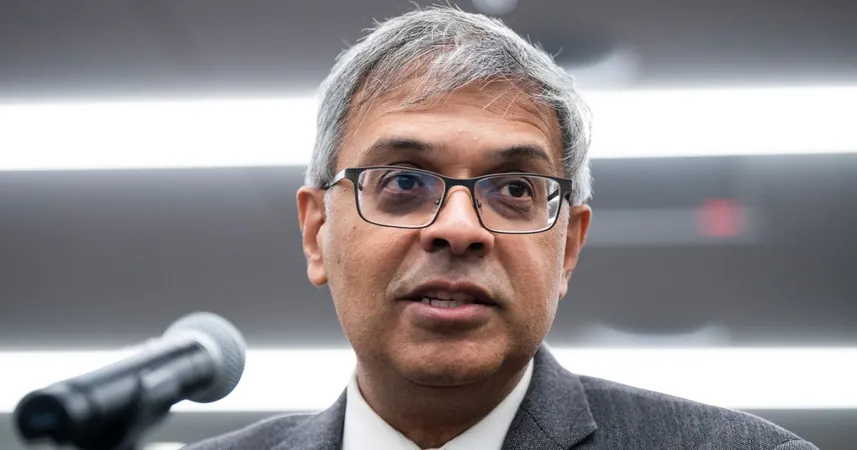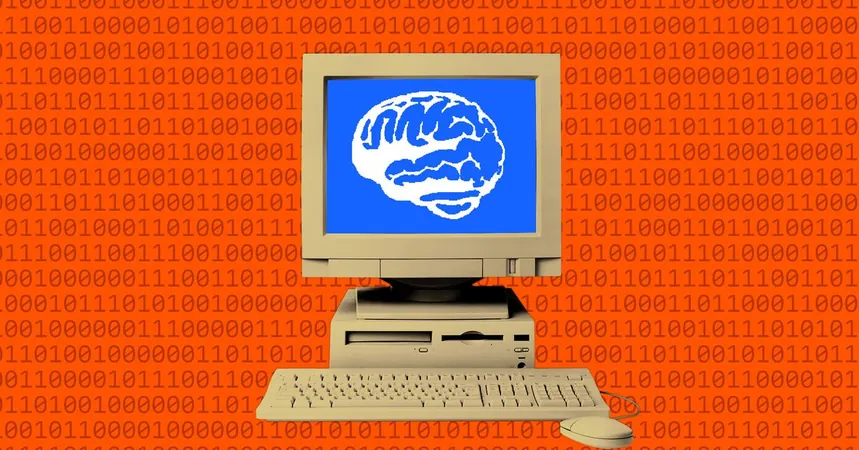
Jay Bhattacharya: The Controversial Pick Behind Trump's NIH Nominations
2024-11-27
Author: Noah
Who is Jay Bhattacharya?
Dr. Bhattacharya is a prominent physician and a professor of health policy at Stanford University, where he also conducts research as an associate at the National Bureau of Economic Research. His academic credentials include a medical degree from Stanford earned in 1997 and a doctorate in healthcare economics from the same institution in 2000.
Throughout the COVID-19 pandemic, he garnered attention for his controversial stance against lockdown measures, asserting that they have detrimental effects on both physical and mental health. In October 2020, Bhattacharya co-authored the Great Barrington Declaration, which argued against extensive lockdowns and proposed a plan of "Focused Protection." The declaration highlighted that health policies during the pandemic had led to significant negative outcomes—ranging from decreased childhood vaccinations to worsening mental health among the population.
After facing criticism from figures such as former NIH director Dr. Francis Collins during the early days of the pandemic, some opponents have begun to reassess their views on Bhattacharya’s approach. In a recent interview, Collins noted that while the primary concern was saving lives, he now acknowledges the profound social and economic impacts some restrictions have had—points that Bhattacharya emphasized from the beginning.
Controversies and Social Media Suppression
In 2022, independent journalist Bari Weiss revealed that Bhattacharya's Twitter account had been secretly blacklisted before Elon Musk's acquisition of the platform. Musk subsequently invited Bhattacharya to discuss the limitations imposed on his voice. Additionally, Bhattacharya has been actively involved in legal disputes concerning free speech, being a plaintiff in a Supreme Court case that claimed the Biden administration was inappropriately suppressing conservative opinions on social media. However, the court ruled in favor of the Biden administration in June 2023.
What Does the NIH Do?
The National Institutes of Health plays a crucial role in overseeing medical and public health research across the U.S. With a staggering annual budget of approximately $48 billion and nearly 18,000 employees, the NIH comprises 27 research institutes, each dedicated to specific areas of health research.
Should Bhattacharya's nomination receive Senate approval, he will work alongside Robert F. Kennedy Jr., who Trump nominated to lead the Department of Health and Human Services. Kennedy’s controversial views on vaccines and COVID-19 have already sparked debate amongst lawmakers from both parties.
Trump praised the pair, stating that together they aim to restore the NIH to "a Gold Standard of Medical Research" as they tackle America's pressing health issues, including the growing crisis of chronic diseases.
The Focused Protection Approach
The Great Barrington Declaration did not only challenge lockdowns but also advocated for a more tailored approach to managing the pandemic. The authors, including Dr. Martin Kulldorff and Dr. Sunetra Gupta, proposed that societies should prioritize the protection of vulnerable populations while allowing those at lower risk to resume normal activities, thus achieving herd immunity more efficiently.
The declaration has received mixed reactions; while it has been co-signed by numerous health professionals globally, it also faced pushback from many in the scientific community who feared it could jeopardize lives, particularly among those with pre-existing conditions.
Looking Ahead
With Bhattacharya's potential leadership at the NIH, many are eager to see how his controversial views might reshape U.S. health policy in the wake of one of the most significant public health challenges in recent history. As the Senate prepares for his confirmation, the public remains divided on the implications of such a nomination amidst ongoing debates about pandemic responses and public health strategies.









 Brasil (PT)
Brasil (PT)
 Canada (EN)
Canada (EN)
 Chile (ES)
Chile (ES)
 España (ES)
España (ES)
 France (FR)
France (FR)
 Hong Kong (EN)
Hong Kong (EN)
 Italia (IT)
Italia (IT)
 日本 (JA)
日本 (JA)
 Magyarország (HU)
Magyarország (HU)
 Norge (NO)
Norge (NO)
 Polska (PL)
Polska (PL)
 Schweiz (DE)
Schweiz (DE)
 Singapore (EN)
Singapore (EN)
 Sverige (SV)
Sverige (SV)
 Suomi (FI)
Suomi (FI)
 Türkiye (TR)
Türkiye (TR)